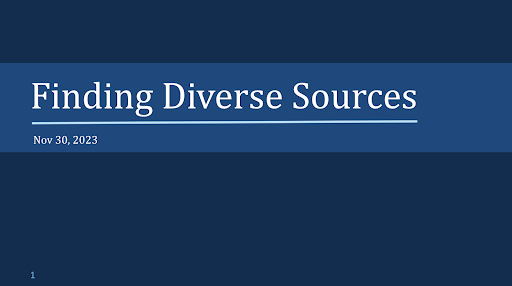Written by Ask a Librarian Intern Marley Rodriguez
When engaging in small talk, people often ask what I am studying at school. They are always surprised when I tell them I am studying Library and Information Science at the University of California, Los Angeles. Among their follow-up questions are:
- That’s a thing?
- You need a Master’s degree to be a librarian?
- Do you like to read books?
The answers are usually:
- Yes, it’s a thing.
- Yes, at most U.S. libraries, whether academic, public, corporate, etc., you most likely need a Master’s degree to hold the title of “Librarian.”
- Yes, I love reading books, but I don’t read books for work…
Instead of sitting around and reading books all day, which is what some people I’ve spoken to assume, my MLIS degree and the profession as a whole encompass many different theories and practices of education, information literacy, research, preservation, access, community, and so much more. I also explain how I want to be an academic librarian when I graduate. I have worked in various student assistant positions in academic libraries since 2019 and love the environment. Since I know this is the route I want to take, I have tried to stick to this path since beginning graduate school.
I was lucky to be selected as an Ask a Librarian Intern at Columbia University Libraries. The internship primarily focuses on providing help for anyone who uses the Ask a Librarian chat during evenings and weekends. Additionally, each intern completes a project they are assigned to based on their skill set or background. I was assigned the project, “Learning About and Leading Library Instruction.”
I was tasked with leading a few of the Libraries’ regular workshops and creating and leading my own original workshop. When brainstorming ideas for my workshop, I was deciding between several topics. Some were more common library instruction workshops, such as “How To Write a Literature Review” or “Advanced Research Tips for the Humanities.” However, most academic libraries already offer these workshops, or students could find tutorials elsewhere online. One promising topic idea was, “Finding Diverse Sources.” I had been working on a research paper for one of my classes about decolonizing academic libraries (which is a long and complex topic; I recommend the book Narrative Expansions: Interpreting Decolonisation in Academic Libraries as an overview). Still, it was essentially about identifying issues of colonization in academic institutions and recommending suggestions on how to address these issues. Having the opportunity to create my own workshop for a university as prestigious as Columbia made me feel the need to push the envelope and create something for the Libraries and the students that had never been done to this extent before.
When developing the outline for this workshop, I began thinking through the learning outcomes. In order to create a useful workshop, completing the learning outcomes first allows for better planning overall. After conducting preliminary research on diversity, decolonization, and problematic information systems in academic libraries, I realized some necessary steps to take before diving in and simply trying to find sources written by marginalized people. Therefore, my learning outcomes were:
- Understand what diversity means in an academic context
- Begin to interrogate your own positionality and biases and how they affect your research
- Learn search strategies for finding diverse sources

By understanding these concepts and biases within themselves, workshop attendees could then search for and accurately identify sources that constitute diversity in academic publishing. I next created a slideshow I would present in my workshop and a digital handout to give to students to refer to as they conduct their research in the future.
Since this is a blog post about this workshop and not the actual workshop itself, I won’t go into all the specifics of what I talked about. However, the workshop was a success, and students expressed their gratitude that this type of workshop was offered. I hope the workshop will continue to be offered by other Ask a Librarian interns or librarians at Columbia. In the meantime, the digital handout is available on Columbia’s Academic Commons.
This internship has allowed me to explore areas of academic librarianship I have always been interested in and allowed me to grow as a student of library and information science. I am incredibly proud to have answered over 200 questions from students, alumni, and faculty on the Ask a Librarian chat this semester. I am also proud to have created an original library workshop that helped students address issues in their research, such as diversity and biases in academic publishing. Please use the digital handout to guide you in your own journey to finding diverse sources for your research.
About the author: Marley Rodriguez (she/her) is a current second-year student in UCLA’s Master of Library and Information Science program. This fall, she participated in the Ask a Librarian Internship at Columbia University, working with Eamon Tewell, Head of Research Support and Outreach in the Science, Engineering, and Social Sciences Libraries (SESSL), on the “Learning About and Leading Library Instruction” project. She is also a Library Student Research Assistant at UCLA and will be interning at California State University, Long Beach, in the spring of 2024 before graduation.